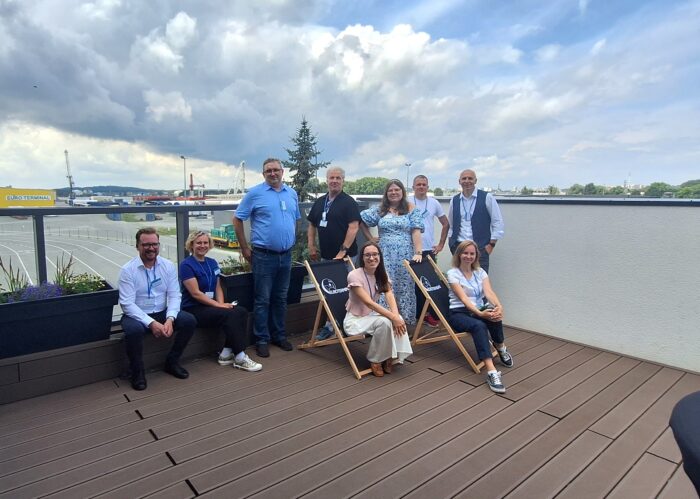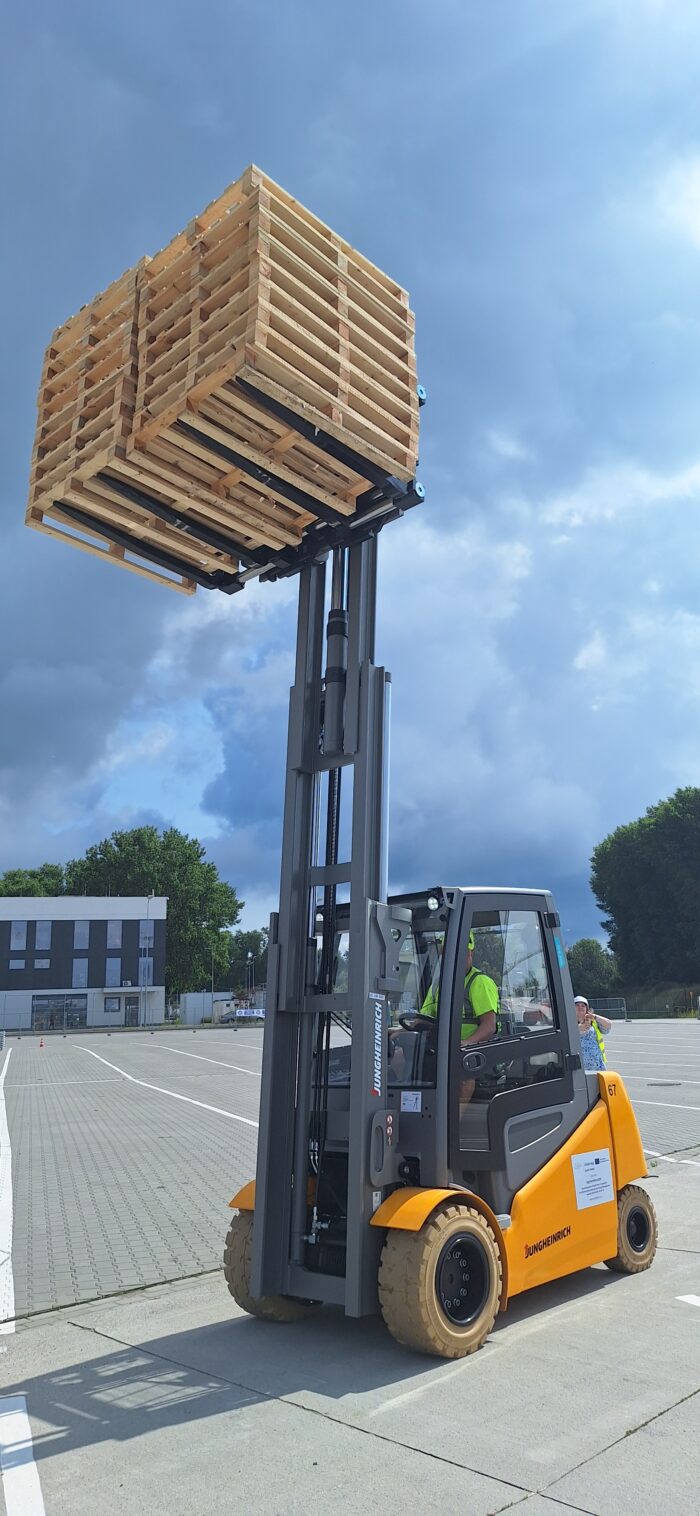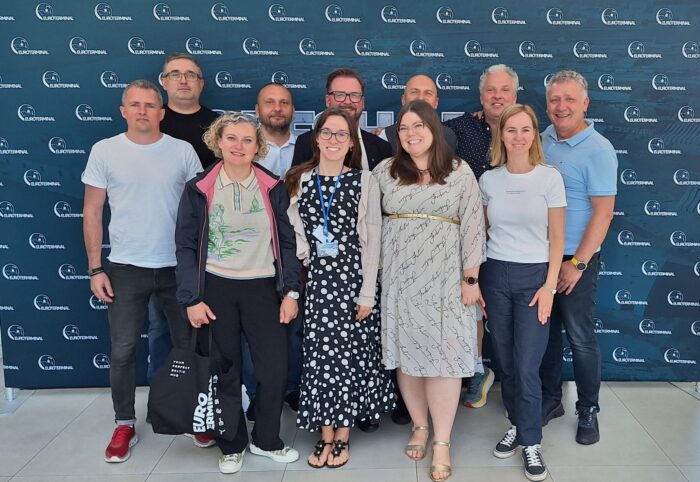From electrification to collaboration — the Świnoujście study visit and partner meeting offered a real-world look at how small and medium-sized ports are leading the green transition.
From 14 to 16 July 2025, partners of the DigiTechPort2030 project came together for the 5th consortium meeting and study visit, hosted by Euro-Terminal Sp. z o.o. in Świnoujście, Poland. The event provided an opportunity to reflect on ongoing pilot activities, showcase progress in port electrification, and align future actions across work packages.
As the communication partner, Motus Foundation was proud to be represented by Joanna Kniter, who joined the discussions on strategic outreach, digital tools, and visibility of project results. Our team continues to support the project in shaping impactful communication outputs and strengthening links between technical innovation and public awareness.
One of the highlights of the meeting was the live demonstration of an electric forklift pilot (Jungheinrich EFG 550), equipped with smart telemetry, RFID access, and energy tracking capabilities. The forklift is part of a broader effort by Euro-Terminal to deca rbonise port operations and model the transition to electric fleets within small and medium-sized ports. Partners were able to observe a manual battery exchange using an overhead crane, discuss the integration of telemetry data into simulations, and explore the potential for automated battery swapping in the near future.
rbonise port operations and model the transition to electric fleets within small and medium-sized ports. Partners were able to observe a manual battery exchange using an overhead crane, discuss the integration of telemetry data into simulations, and explore the potential for automated battery swapping in the near future.
Beyond the demonstration, participants toured the terminal’s operational zones—including cargo handling areas, cold storage, rail connections, and the secure battery charging facility. The visit offered a valuable first-hand perspective on how digitalisation and electrification are shaping real port environments, particularly in smaller regional settings.
The meeting also provided space for strategic coordination. While technical sessions focused on pilot data, modelling, and planning, communication-focused discussions explored how to translate these innovations into accessible stories, stakeholder materials, and policy dialogues. Ensuring that project value is visible “outside the room” remains a shared priority across the consortium.
Motus Foundation is grateful to be part of this diverse and forward-looking partnership. We thank Euro-Terminal Sp. z o.o. for their outstanding hospitality and for showcasing one of the most tangible pilot implementations of the DigiTechPort2030 initiative so far.
We look forward to supporting the next phase of work—bringing project results to broader audiences and contributing to sustainable, smart port systems across the South Baltic region.




